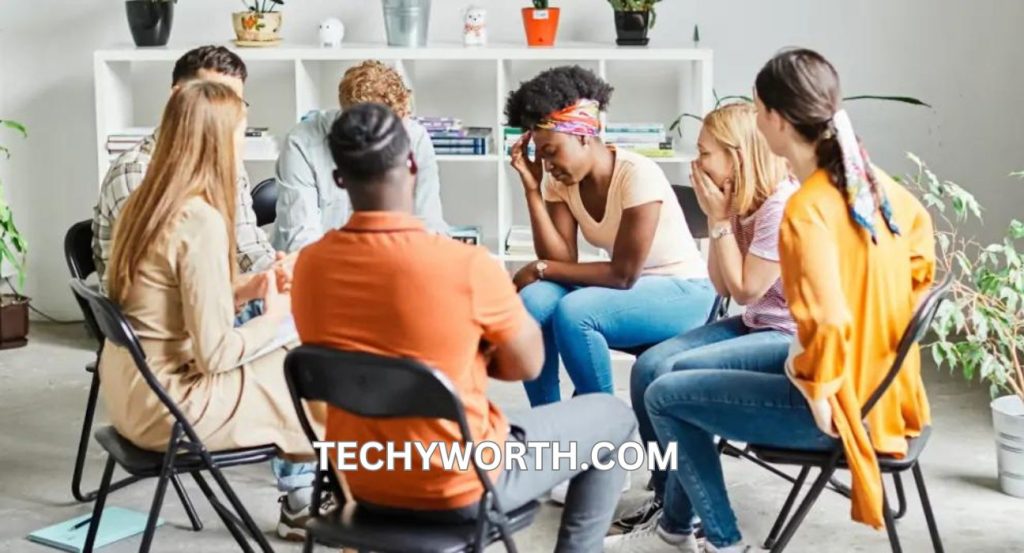Introduction
Human gathering fake refers to events or gatherings that are staged or misrepresented, often for deceptive purposes. Understanding these fake gatherings is crucial as they can lead to significant social and economic consequences. Recognizing the signs and impacts of such gatherings can help individuals and communities better navigate these challenges.
Read More: Roof Repairs in Green Tree
Identifying Human Gathering Fake Events
Common Signs of Fake Gatherings
Identifying human gathering fake events involves looking for certain red flags. These may include inconsistent or vague information about the event, a lack of credible sources or organizers, and suspiciously high promises or guarantees. Be wary of events that require upfront payments without clear terms.
Tools and Techniques for Detection
Several tools and techniques can help detect fake gatherings. Verifying the event details through multiple sources, checking the credibility of the organizers, and using online platforms that track event authenticity are effective strategies. Social media can also provide insights into the legitimacy of an event.
The Psychology Behind Human Gathering Fake
Motivations for Creating Fake Gatherings
Understanding the motivations behind Human gathering events can provide context. Organizers may create these events for financial gain, to manipulate public opinion, or to gather personal information. The psychology of deception plays a significant role in how these events are crafted and presented.
Psychological Impact on Participants
Participating in a Human gathering fake event can have psychological impacts. Attendees may feel betrayed or embarrassed, which can lead to a loss of trust in similar future events. Recognizing these impacts is important for mental health and social well-being.
The Role of Social Media in Human Gathering Fake
How Fake Gatherings Spread Online
Social media platforms play a significant role in the spread of Human gathering fake events. The algorithms often prioritize engagement over accuracy, making it easy for fake events to go viral. Users should be cautious and verify event details before participating.
Influence of Algorithms and Fake Engagement
Algorithms on social media can amplify fake gatherings by promoting content that generates high engagement, regardless of its authenticity. This can lead to widespread dissemination of false information, making it harder for users to discern real from fake events.
Case Studies
Notable Examples and Their Impact
Several high-profile cases of human gathering fake events highlight the severity of the issue. These include events that promised grand experiences but delivered nothing, leading to financial losses and reputational damage. Studying these cases helps in understanding the mechanisms and consequences of such deceptions.
Lessons Learned from Past Incidents
From past incidents, we learn the importance of due diligence and skepticism. Verifying event details, understanding the common tactics used by deceivers, and educating the public about these practices can prevent future occurrences.

Consequences of Human Gathering Fake
Social and Economic Implications
The consequences of human gathering fake events can be far-reaching. Socially, they can erode trust within communities. Economically, they can lead to significant financial losses for individuals and businesses that fall victim to these scams.
Effects on Trust and Community Cohesion
Fake gatherings undermine trust and community cohesion. When people repeatedly encounter fake events, they become more cynical and less likely to participate in genuine gatherings, which can weaken community bonds.
Preventing and Mitigating Human Gathering Fake
Best Practices for Verification
To prevent falling victim to human gathering fake events, always verify the details. Cross-check information from multiple credible sources, look for reviews or testimonials from previous attendees, and ensure the organizers have a reputable background.
Role of Education and Critical Thinking
Education and critical thinking are key in combating fake gatherings. Teaching people how to critically evaluate information and recognize signs of deception can reduce the spread and impact of these events. Encouraging skepticism and inquiry is essential.
Legal and Ethical Considerations
Legal Ramifications of Fake Gatherings
Organizers of human gathering fake events can face legal consequences, including fraud charges. It is important to be aware of the legal implications and to report suspicious activities to the authorities.
Ethical Issues and Responsibility
Ethically, creating fake gatherings is deeply problematic as it exploits people’s trust and can cause significant harm. Organizers have a responsibility to be honest and transparent, and the public should hold them accountable.
Future Trends
Emerging Technologies and Tactics
As technology evolves, so do the tactics used in human gathering fake events. Emerging technologies like deepfakes and advanced AI can make it harder to distinguish fake events from real ones. Staying informed about these trends is crucial.
Predictions for the Future Landscape
In the future, we may see more sophisticated and widespread fake gatherings. However, with increased awareness and better detection tools, it is possible to mitigate their impact. Collaboration between technology companies, law enforcement, and the public is key.
Analyzing the Motivations Behind Human Gathering Fake
Financial Gain
Many fake gatherings are created with the intent of financial gain. Organizers may charge high fees for entry, promising extravagant experiences that never materialize. Understanding this motive can help attendees stay cautious and avoid financial losses.
Manipulating Public Opinion
Human gathering fake events can be used to manipulate public opinion. These gatherings might promote specific agendas or create false impressions of widespread support. Recognizing this tactic is crucial for maintaining a balanced perspective.
The Role of Technology
Use of Deepfakes
Advanced technologies like deepfakes can make human gathering fake events appear legitimate. These technologies create realistic but fake audio and video, deceiving potential attendees. Staying updated on tech trends can help in identifying these fake elements.
Automated Bots
Automated bots can amplify the reach of fake gatherings. These bots generate fake interactions and engagement, making the event seem more popular than it is. Being aware of this can help in assessing the true nature of online buzz around an event.
Community Response to Human Gathering Fake
Collective Vigilance
Communities can combat human gathering fake events through collective vigilance. Sharing information about suspected fake events and educating each other on signs of deception can reduce the impact of these gatherings.
Reporting Mechanisms
Effective reporting mechanisms are essential in addressing fake gatherings. Platforms should have easy-to-use reporting tools that allow users to flag suspicious events. Quick action can prevent these gatherings from causing widespread harm.
The Impact of Human Gathering Fake on Trust
Erosion of Trust
Repeated exposure to fake gatherings can erode trust within communities. When people encounter several fake events, they become skeptical of all gatherings, affecting genuine community engagement. Building and maintaining trust requires transparency and accountability.
Rebuilding Trust
Rebuilding trust after encountering human gathering fake events involves consistent communication and genuine interactions. Organizers of legitimate events must prioritize transparency to restore faith in community gatherings.
Strategies for Authentic Engagement
Promoting Transparency
Promoting transparency is key to countering human gathering fake events. Event organizers should provide clear, verifiable information about their events, including detailed agendas and credentials of speakers.
Encouraging Critical Thinking
Encouraging critical thinking among community members can help them discern between real and fake gatherings. Education on media literacy and critical evaluation of information sources is vital in this effort.
By understanding the various facets of human gathering fake events and implementing these strategies, individuals and communities can better navigate and mitigate the risks associated with these deceptive gatherings.
Conclusion
Human gathering fake events pose significant risks to social and economic well-being. By understanding their mechanisms, impacts, and ways to prevent them, individuals and communities can better protect themselves. Stay informed, be skeptical, and prioritize verification to navigate the complex landscape of human gatherings.
Read More: Miguel Gallego Arámbula Parents
Frequently Asked Questions
What is a human gathering fake?
A human gathering fake refers to events that are staged or misrepresented, often to deceive attendees for financial gain or to manipulate public opinion.
How can I identify a human gathering fake?
Look for inconsistent information, lack of credible sources, and overly grand promises. Verify details through multiple sources and check the organizers’ reputation.
Why do people create fake gatherings?
People create fake gatherings for financial profit, to promote specific agendas, or to gather personal information from attendees.
What are the consequences of attending a fake gathering?
Attending a fake gathering can lead to financial loss, wasted time, and emotional distress. It can also erode trust in future events.
How do social media platforms contribute to fake gatherings?
Social media platforms can amplify fake gatherings through algorithms that prioritize engagement over accuracy, spreading misinformation quickly.
What should I do if I suspect an event is a fake gathering?
Report the event to the platform hosting it, share your concerns with others, and avoid sharing personal or financial information with the organizers.
Can technology help detect fake gatherings?
Yes, tools like deepfake detection and algorithms that verify event details can help identify and flag potentially fake gatherings.
How can I protect myself from fake gatherings?
Always verify event details from multiple credible sources, check the organizers’ background, and avoid paying upfront for unclear promises.
What is the impact of fake gatherings on communities?
Fake gatherings can erode trust within communities, leading to skepticism about legitimate events and weakening social cohesion.
How can we rebuild trust after encountering a fake gathering?
Rebuilding trust involves transparent communication, consistent verification of event details, and fostering genuine interactions within the community.
